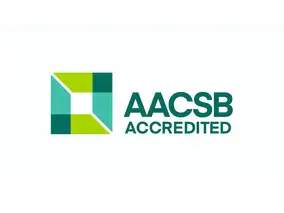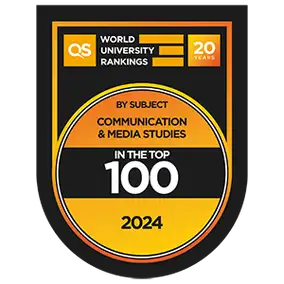Where you can study
International students
International students are not New Zealand citizens or residents.
Specialise in Expressive Arts for your Bachelor of Communication at Massey
Expressive arts is unique in New Zealand and was created in response to student demand. As part of your study, you will be able to choose from a range of activities such as devising, directing and writing theatre, writing creative works including fiction, poetry, creative nonfiction, writing for children, and screenplays, or filming and producing digital video.
Choose the creative discipline you love
Students told us they wanted a little bit of theatre, creative writing or digital media production, or some combination. But not necessarily to focus just on one. So we invented ‘expressive arts’. We call it the ‘triple dip’ major where you can add as much or as little as you like to your degree from any of the three creative discipline areas of theatre, creative writing, or digital media production. You choose what to emphasise, whether it’s one, two or all three of these areas.
Hands-on, relevant skills
As well as hands-on skills in various creative areas, you’ll learn leadership skills and how creativity fits into a professional communication role.
For example, you might write a travel memoir, produce a music video, or direct an experimental multi-media show based on your original script. You might use techniques of improvisational theatre as a way of unlocking and managing your creativity across other media including creative writing. You might find yourself crafting Twitter poetry or learning how your posture communicates instantly to others.
Devise, direct and write
As part of your study, you will be able to devise, direct, write and produce theatre, creative writing and/or digital video productions.
Further study
Many Bachelor of Communication (Expressive Arts) graduates go on to our Master of Creative Writing, while others find a home for their further study aspirations in the Master of Arts.
A Bachelor of Communication in Expressive Arts is a good fit if you:
- are in lots of student clubs and societies at school or enjoy putting on creative events
- want to be a creative writer, filmmaker or theatre maker but know you need organisational skills
- are interested in applying creative skills in a professional communication career.
Planning information
Full-time study in your first year comprises eight 15-credit courses, for a total of 120 credits. We recommend studying 60 credits per semester. You may also wish to take some courses at summer school but ensure you include those that are required for the next level of courses.
Although you are asked to nominate your BC major and minor when enrolling, please be aware that you can change these once you are enrolled. If you find that you want more media studies mixed in with your Expressive Arts, please be aware that there is also a composite Expressive Arts/Media Studies major
No course can be credited to a major and a minor.
This major
Completing a major is compulsory. The Expressive Arts major requires 120 credits including at least 60 credits at 200 level and 60 credits at 300 level.
Minors
Completing a minor is compulsory.
Minors increase the breadth of your degree. They give you extra knowledge, attributes and capabilities.
The Expressive Arts major is from the College of Humanities and Social Sciences. That means you can choose a minor from the list of majors the Massey Business School offers:
- Communication Management
- Digital Marketing
- Journalism
- Public Relations
An Expressive Arts minor (for students who are studying a different degree)
If you are not studying a Bachelor of Communication and wish to complete a minor in Expressive Arts see the Bachelor of Communication regulations for requirements.
Official regulations
To understand what you need to study and must complete to graduate read the official rules and regulations for this qualification.
You should read these together with all other relevant Statutes and Regulations of the University including the General Regulations for Undergraduate Degrees, Undergraduate Diplomas, Undergraduate Certificates, Graduate Diplomas and Graduate Certificates.
Returning students
For returning students, there may be changes to the majors and minors available and the courses you need to take. Go to the section called ‘Transitional Provisions’ in the Regulations to find out more.
In some cases the qualification or specialisation you enrolled in may no longer be taking new enrolments, so may not appear on these web pages. To find information on the regulations for these qualifications go to the Massey University Calendar.
Please contact us through the Get advice button on this page if you have any questions.
Courses you can enrol in
Course planning key
- Prerequisites
- Courses that need to be completed before moving onto a course at the next level. For example, a lot of 200-level courses have 100-level prerequisite courses.
- Corequisites
- Courses that must be completed at the same time as another course are known as corequisite courses.
- Restrictions
- Some courses are restricted against each other because their content is similar. This means you can only choose one of the offered courses to study and credit to your qualification.
Core courses for the Bachelor of Communication
As well as the specialisation courses listed below, this qualification has core courses that you will need to complete.
Bachelor of Communication core courses
Expressive Arts courses
Course code: 139209 Speaking: Theory and Practice 15 credits
A study of the theoretical and practical aspects of public speaking. Attention will be paid to building a rapport with an audience, to the preparation of material for spoken delivery and to the technical elements of voice production.
View full course detailsCourse code: 139220 Theatre for Change 15 credits
An applied introduction to the varied ways in which theatre is used for social and personal change.
View full course detailsCourse code: 139223 Creative Processes 15 credits
An investigation of human creativity that involves the study of creative practice and the making of original works of performance, film and writing.
View full course detailsCourse code: 139224 Making Plays for Theatre 15 credits
Students will receive a grounding in the skills of writing experimental theatre and an opportunity to employ these skills in the creation of original scripts.
View full course detailsCourse code: 139225 Writing for Children 15 credits
An intermediate-level introduction to the craft of writing targeted at ‘middle readers’ – roughly 9-13 years – across a variety of forms.
View full course detailsCourse code: 139229 Writing Poetry 15 credits
A creative writing course in which students develop and advance poetry skills within the major modes of lyric poetry and within the context of a more advanced engagement with fundamental elements of craft. In addition to reading poetry and critical essays on the genre, students will write original poetry and critically review their own work and the work of peers.
View full course detailsCourse code: 139280 Creative Writing II: Creative Nonfiction 15 credits
An intermediate-level introduction to the craft of nonfiction writing in a variety of genres, with a particular focus on the application of techniques usually associated with fiction and poetry to nonfiction material.
View full course detailsCourse code: 139285 Fiction Writing 15 credits
An intermediate-level study of the craft of fiction, investigating a range of forms by means of creative production, workshopping and peer review.
View full course detailsCourse code: 154204 Digital Media Production I 15 credits
An advanced introduction to producing digital media. This course uses hands-on, experiential learning to introduce techniques, concepts and processes for producing photography and video using industry standard hardware and software.
View full course detailsCourse code: 154224 Documentary (Non-Fiction) Film 15 credits
A study of the genre of documentary (non-fiction) film. The course will provide students with a critical awareness of the theory, history and various forms relevant to the genre. Students will plan and produce short documentary films. NOTE: Students require access to their own video camera and editing facilities.
View full course detailsCourse code: 139303 Modern Drama 15 credits
A study of innovative modern plays, by means of investigative workshops, theatrical performances, lecture/demonstrations and seminar presentations.
View full course detailsCourse code: 139309 Eco-fictions and Non-fictions 15 credits
A study of the relationships between creative writing and ecological concerns, covering a range of contemporary forms from eco-fictions, nonfictions, or poetry, to nature writing, to animal stories. It engages students in the workshopped production of original creative work.
View full course detailsCourse code: 139320 Theatre in Production 15 credits
This course studies theatre as an expressive art, with a focus on processes of adaptation, particularly the creation of new texts from old. It combines critical and practical research, including the presentation of a developed stage work, to examine how design, music and acting generate meaning in the performance of a text.
View full course detailsCourse code: 139323 Script Writing 15 credits
An in-depth study of the skills, formats, technique and terminology of professional script writing, with emphasis on the adaptation of traditional approaches across the diversity of contemporary media.
View full course detailsCourse code: 139326 Travel Writing 15 credits
A study of travel writing, involving both critical and ideological analysis and creative writing developed from the students' own field work.
View full course detailsCourse code: 139329 Advanced Fiction Writing 15 credits
An exploration of the poetics and politics of experimentation and subversion in contemporary fiction and metafiction including analysis of the work (both creative and critical) of major practitioners, theorists and original student compositions.
View full course detailsCourse code: 139333 Creativity in the Community 15 credits
The course provides an applied service learning project in the disciplines of expressive arts and media studies. Working collaboratively, students apply skills in theatre, performance, film-making, creative writing, media practice or mixed media to developing a creative response to a social issue or community need.
View full course detailsCourse code: 139340 The Publishing Project 15 credits
In this course, students study and experience the principles, processes and practice of publishing, through the co-production of an online publication. Key concepts include teamwork, co-production, theme selection, peer review, production scheduling, source selection, and online publishing.
View full course detailsCourse code: 139362 Oceanic Literatures of Aotearoa: Ngā Tuhinga Kōrero o te Moana nui a Kiwa 15 credits
A study of contemporary Oceanic (Māori and Pasifika) literature in English contextualised in relation to customary and pre-colonial Oceanic literatures, narratives, and storytelling methods.
View full course detailsCourse code: 139380 Creative Writing III: Starting Your Manuscript 15 credits
An advanced study of the process of writing that consolidates knowledge of creative writing craft, expands understanding of genre, and analyses aesthetic and/or cultural aspects of published manuscripts across genres. The first portion of an envisioned full-length creative manuscript will be drafted with an emphasis on the critical evaluation of its aesthetic and/or cultural implications.
View full course detailsCourse code: 154304 Digital Media Production II 15 credits
The further development of skills and abilities in a chosen media area with particular emphasis upon the production of a major media project.
View full course detailsEntry requirements
Admission to Massey
All students must meet university entrance requirements to be admitted to the University.
Specific requirements
There are no specific entry requirements for this qualification, outside of university admission regulations.
English language requirements
To study this qualification you must meet Massey University's English language standards.
English language skills
If you need help with your English language skills before you start university, see our English for Academic Purposes (EAP) courses.
Can't meet the entry requirements?
If you need to do a course before you start your qualification, there may be options for you in Summer School.
Fees and scholarships
Fees, student loans and free fees scheme
Your tuition fees may be different depending on the courses you choose. Your exact fees will show once you have chosen your courses.
There will also be some compulsory non-tuition fees and for some courses, there may also be charges for things such as study resources, software, trips and contact workshops.
- Get an estimate of the tuition fees for your qualification
- View a list of non-tuition fees that may be payable
Already know which courses you're going to choose?
You can view fees for the courses that make up your qualification on the course details pages.
Student loans (StudyLink) and Fees Free scheme
You may be eligible for a student loan to help towards paying your fees.
The New Zealand Government offers fees-free tertiary study for eligible domestic students. Find out more about the scheme and your eligibility on the Fees Free website. To use the site's eligibility checking tool, you will need your National Student Number.
Current and returning Massey students can find their National Student Number in the student portal.
- Student loans (StudyLink)
- Fees Free
- Student portal
Scholarship and award opportunities
Find more scholarships and awardsFees disclaimer
This information is for estimation purposes only. Actual fees payable will be finalised on confirmation of enrolment. Unless otherwise stated, all fees shown are quoted in New Zealand dollars and include Goods and Services Tax, if any. Before relying on any information on these pages you should also read the University's Disclaimer Notice.
Careers and job opportunities
Surveys have shown that today’s employers seek graduates who are collaborative, creative and can communicate well. They want staff who can give compelling presentations, problem-solve creatively, think originally, analyse perceptively, communicate effectively (both in person and in writing) and work well in teams. They especially want ‘creative disruptors’ in the sense of people who use their imagination to see things differently and propose new alternatives.
Learn these skills through expressive arts. When combined with the communication and corporate skills that you learn through your Bachelor of Communication you will have a qualification that can be applied across an amazing range of roles.
Graduates with an expressive arts major are working today in:
- government outreach
- social media management
- arts publicity
- human resources
- advertising
- marketing and public relations
- filmmaking
- television and journalism
- teaching
- theatre and entertainment, and
- creative and professional writing.
International students
New Zealand is a great place to study. Massey University’s reputation is supported by our international rankings, accreditations and associations. We are rated five star plus by the QS World University Rankings.
Massey University has small class sizes, and our lecturers and staff are friendly and approachable.
As an international student, there are entry requirements that will apply to you. We recommend that you apply at least three months before your anticipated start date so your application can be processed in time. There are additional steps you will need to take. These include obtaining a visa and travel bookings if your study is to be in New Zealand.
What our students say
“My post-graduate studies made me standout and were a definite factor in being selected for the roles I've had since graduating.”

Ngāti Whātua, Ngāpuhi & Ngāti Kahungunu
Accreditations and rankings

Association to Advance Collegiate Schools of Business (AACSB)
Massey Business School is rated in the top 5% of global business colleges by AACSB International.

QS Ranking - Communication and Media
Massey is ranked by QS (Quacquarelli Symonds) as one of the top 100 universities for communication and media studies. QS is an organisation that ranks universities worldwide in various topics.

ShanghaiRanking - Communication
Communication at Massey is ranked #1 in New Zealand, and 76th in the world, by ShanghaiRanking.
Related study options
Bachelor of Fine Arts with Honours – BFA(Hons)
Discover how to produce work that makes people think and feel, act and react. Whatever your mode of art-making is, we’ll help you find and develop your own creative voice.
Certificate in Creative Arts – CertCreativeArt
Massey’s Certificate in Creative Arts is a flexible qualification that will introduce you to the basics of art and design - creative thinking, visual communication, specialist skills, and critical awareness.
Design – Master of Fine Arts
Embed yourself in a rich dialogue about your creative practice in Massey’s transdisciplinary Master of Fine Arts (Design) qualification, for artists and designers.
Diploma in Creative Arts – DipCreativeArts
You’ll study with art and design degree students in a range of studio and lecture-based courses covering everything from critical and contextual studies, to social media, painting, and digital fabrication.
Fine Arts – Master of Fine Arts
Embed yourself in a rich dialogue about your creative practice in Massey’s transdisciplinary Master of Fine Arts (Fine Arts) qualification, for artists and designers.
Graduate Diploma in Fine Arts – GDipFA
Massey’s Graduate Diploma in Fine Arts is for skilled graduates who want to gain new knowledge and skills in fine arts.
Master of Creative Enterprise – MCE
Combine research and practice to give you the skills you need to make your mark in the highly competitive creative industries.
Postgraduate Diploma in Fine Arts – PGDipFA
Extend your creative practice and begin your fine arts journey. Massey’s Postgraduate Diploma in Fine Arts gives you the opportunity for advanced study in contemporary art.
Visual Communication Design – Bachelor of Design with Honours
Visual communication is one of the most universal forms of design. It is at the heart of how our world works; guiding, informing, persuading, and inspiring us every day.
Without Specialisation – Master of Fine Arts
Embed yourself in a rich dialogue about your creative practice in Massey’s transdisciplinary MFA qualification for artists and designers.
Without Specialisation – Postgraduate Diploma in Design
Go beyond your bachelor’s degree and advance your design thinking with a Postgraduate Diploma in Design.
Without Specialisation – Graduate Diploma in Design
Develop your technical skills and learn to think like a designer.
Useful planning information

Key information for students
Compare qualifications and academic information across different New Zealand institutions. Learn more on careers.govt.nz